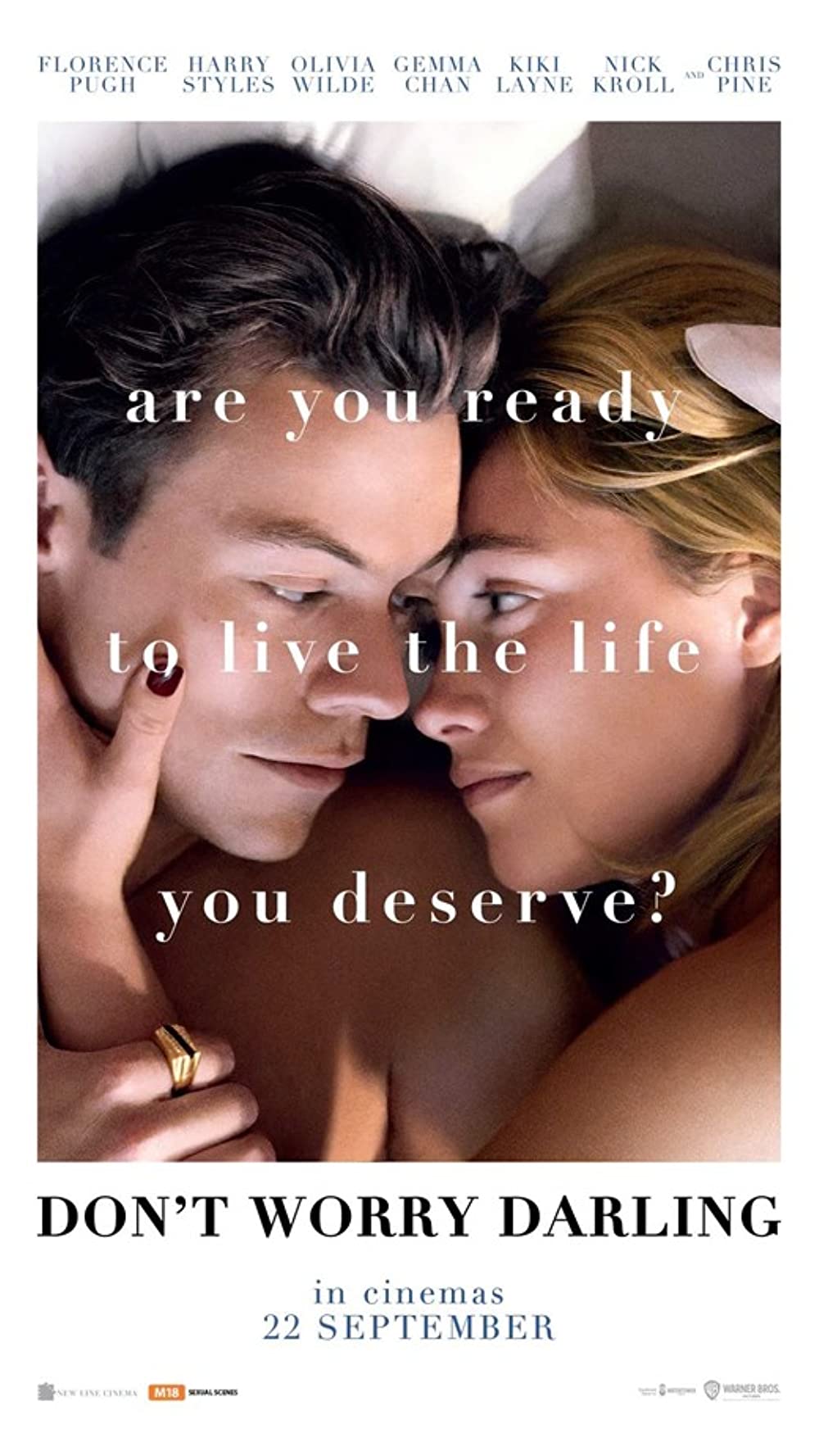Don’t Worry Darling is Olivia Wilde’s follow-up to her critically acclaimed directorial debut in Booksmart. Unfortunately, this second film fails to live up to the hype. Before diving into real review territory, though, I first want to make a note of the viewing experience more generally.

I was fortunate enough to catch an early showing of the film on Monday, September 19th, before its wide release. On this one day only, the film was shown in IMAX at over 100 theatres in North America. Accompanying this IMAX showing was a live Q and A broadcast from New York with the cast. For individuals living outside of major film hubs, being able to have these early screenings with the intimate feel and connection to the cast is something that I hope is brought more frequently to the big screen.
There was only enough time for a few questions to be asked of the cast, but of course, Harry Styles provided the most memorable soundbite. When asked what drew him to the project, he paused for what felt like an eternity before saying, quite simply, “the mood board”. After pausing again, his explanation was limited simply to “I like mood boards”. The interviewer waited for a more nuanced exploration of this idea, but Styles had nothing more to bring to the table. This short interaction illustrated what could be considered to be a lack of depth on Harry’s part. Sadly, his performance in this film mirrored his interview response – lacking substance and, for many moments, appearing quite out of his comfort zone.
On the whole, Wilde’s vision for the film is admirable. It is a clear attempt to thrust the patriarchy into focus and highlight both overt and covert systems of oppression in our modern-day society. Unfortunately, this is not well-aided by a heavy-handed approach in which imagery and dialogue leave little to the imagination. In an attempt to make a profound statement, Wilde ends up saying very little that has not already been said. Unfortunately, while endeavouring to shine a light on issues such as gaslighting and microaggressions, a lack of nuance leads to these very real societal issues becoming almost laughable. What should be a film exploring Florence Pugh’s dismantling of the patriarchy ultimately turns into a film of several different parts, none of which come together into a cohesive whole.
That being said, Pugh should still be commended for her performance. With minimal character depth provided, she is still able to build someone whom the audience is still able to empathize with. “Miss Flo” is a bright spot in a cast otherwise lacking in genuine human emotion. Styles is a caricature of a man, whose delivery of lines consists exclusively of “deadpan” or “yelling uncontrollably”. Wilde and Nick Kroll provide serviceable performances in their supporting roles, with Kroll doing “Kroll things” and giving the audience some genuine moments of comedic relief. Chris Pine’s character as the leader of this new community also lacks any noticeable depth and his portrayal as the villain seems to be little more than “man with power do bad”.
Beyond the performances, the editing and very structure of the film could be considered to be lacklustre at a minimum. There is very little world-building to begin, which makes it difficult for the audience to immerse themselves in the setting. Whenever a particular scene begins to build, harsh cuts take us to another time or place, leaving each potential moment feeling incomplete. At times, certain shots feel as though they have been lifted directly from a second-year film student’s budding catalogue. These shots attempt to aid in the storytelling through vague metaphors, circling topics of conformity and social pressure, but ultimately comes off as more pompous than substantive. In all fairness, certain shots hold up for their beauty alone, particularly the black and white shots centred on a group of ballerinas, but these shots still add little to the narrative in its entirety.
All in all, this is a valiant effort by Wilde to create a new world and unpack systemic issues in our society, but it falls short on most levels. Beyond the areas mentioned above, there are also incongruent tonal shifts, inconsistent choices in the soundtrack, and laughably poor car chases.
But hey, there are a few scenes of an extremely dishevelled Harry Styles, equipped with glasses and a beard, which will make for some extraordinary memes… So, there’s always that to look forward to.





So pumped for the future memes!!